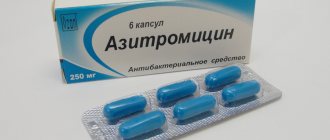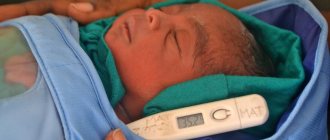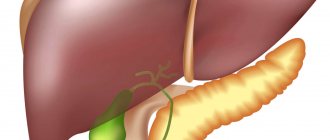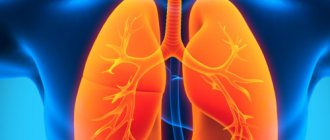Acute gastroenteritis in adults
Acute gastroenteritis is an inflammatory, infectious disease of the intestinal mucosa caused by viruses, bacteria or parasites. The causes are quite varied, but the most common is norovirus infection. It spreads through contaminated food, water or contact with a sick person.
The best way to prevent it is to wash your hands frequently. Symptoms of gastroenteritis include: diarrhea, abdominal pain, vomiting, headaches, fever and chills. Most people recover without treatment.
The most common problem with acute gastroenteritis is dehydration (dehydration). This occurs if you do not consume enough fluids to replace those lost through diarrhea and vomiting.
medlineplus.gov
Features of treatment and prevention
For acute gastroenteritis, treatment should be prescribed by a doctor. If the form of the disease is mild, then the disease can be treated at home. In this situation, plenty of fluids, a strict diet, enzymes and adsorbents are prescribed.
In the case of moderate forms of acute gastroenteritis, as well as severe forms, treatment is carried out in a hospital setting. This is necessary in order to avoid severe dehydration of the body. In addition to the listed treatment methods, extensive infusion therapy will be required. With its help, electrolyte and fluid reserves are replenished, and the body is cleansed of toxic substances. In addition, you will need an appropriate diet, as well as the use of antibacterial drugs. Diet plays an important role, so do not neglect it. With the help of proper nutrition, the healing process will proceed much faster.
As for the prognosis for acute gastroenteritis, it is usually favorable. If a severe form of the pathology develops, or there is no proper medical treatment, the pathology can result in death. If the infectious nature of gastroenteritis is detected, then it is forbidden to interrupt treatment with antibacterial drugs, otherwise there is a risk of creating a bacterial carrier, which will lead to infection of surrounding people.
As a competent prevention, you need to eat right and follow the rules of personal hygiene. The expiration dates of products, especially perishable ones, deserve special attention.
Acute gastroenteritis is an inflammatory process that occurs in the mucous membrane of the gastrointestinal tract. It is important to seek medical help promptly to avoid complications.
Infectious subspecies in children
Many children experience more than one episode per year. The severity of the illness can range from mild stomach upset for one or two days to severe diarrhea with vomiting for several days or more.
Children's acute infectious gastroenteritis is also caused by a virus. Rotavirus infection is the most common cause of the disease, occurring in almost every child under 5 years of age.
Once you have had rotavirus, your immune system becomes immune to getting sick again. It is for this reason that rotavirus infections are not usually common in adults.
Adenoviruses, another group of viruses that often cause acute gastroenteritis in children. Rotavirus and adenovirus infections are more common in infants and young children than in adolescents.
patient.info
Symptoms of the disease
Symptoms of gastroenteritis in adults vary depending on the form of the pathology, the provoking factor, and the state of the person’s immunity. At a mild or moderate stage of inflammation of the mucous membrane, a person develops the following symptoms:
- disturbance of intestinal motility - diarrhea (often with admixtures of fresh blood), constipation develops much less often;
- disorders of the digestive system: nausea, vomiting, flatulence, heartburn, sour belching, bloating;
- sharp painful spasms in the epigastric region, spreading to the sides and lower abdomen;
- lack of appetite, sudden loss of body weight;
- weakness, increased fatigue, drowsiness;
- headaches localized in the occipital region;
- change in the color of stool to greenish or yellowish, impurities of blood and mucous substances are found in it;
- slight decrease in blood pressure.
As the intestinal infection spreads in the body, the severity of the symptoms of acute gastroenteritis increases . They do not subside even for a short time, their attacks become more frequent.
With the help of vomiting and diarrhea, the body seeks to get rid of toxic compounds and poisons. Along with them, the liquid necessary for all vital systems goes away. As you try to eat, the signs of the inflammatory process in the gastrointestinal tract intensify.
If the victim is not provided with medical assistance, the disease takes on a severe, life-threatening form. It manifests itself with the following symptoms:
- sudden changes in temperature, fever, chills, cold sweat;
- tremor of the upper and lower extremities;
- pallor of the skin, cyanosis of the nasolabial fold;
- dry mucous membranes;
- impaired coordination of movements, inability to maintain an upright position;
- emotional lability, fainting;
- a sharp decrease in blood pressure and heart rate.
It is possible to prevent the development of complications only at the initial stage of acute gastroenteritis. The following external signs are extremely indicative for diagnosis:
- loss of skin elasticity and firmness;
- dryness of the mucous membranes of the nose, mouth and throat.
This condition indicates the beginning of dehydration of the body, the removal of useful biologically active substances and mineral compounds from it. The presence of symptoms of a mild stage of gastroenteritis serves as a signal to immediately contact the nearest medical facility.
Gastroenterologists have a term - intestinal dyspepsia syndrome. Patients with inflammation of the mucous membranes of the stomach and intestines complain of pressure, distension and bloating . After eating, rumbling and transfusion appear in the epigastric region due to a violation of the breakdown of food into easily digestible substances.
Symptoms and treatment of acute gastroenteritis
Symptoms and signs of the disease
Symptoms of acute gastroenteritis include:
- diarrhea (diarrhea),
- vomit,
- frequent or infrequent urination,
- abdominal pain,
- signs of infection, fever, chills, muscle pain, rash, mucous discharge from the nose, dry throat, cough,
- changes in appearance and behavior - weight loss, malaise, lethargy or irritability, as well as eating disorders in children,
- evidence of recent antibiotic use – increased likelihood of having Clostridium difficile,
- evidence of exposure to high-risk areas.
Diarrhea and vomiting can cause dehydration. Consult your doctor immediately if you suspect it is developing in your child. Mild dehydration is common and is usually reversible with plenty of fluids.
Severe dehydration can be fatal if not treated quickly because organs require a certain amount of fluid to function properly.
Signs of dehydration in children:
- decreased urine output,
- dry lips and tongue,
- few tears when crying,
- sunken eyes,
- weakness,
- irritability or lethargy.
Signs of severe dehydration:
- drowsiness,
- pale skin,
- cold hands and feet,
- rapid (often shallow) breathing.
Severe dehydration is an emergency and requires immediate medical attention.
patient.info
Effective treatment of pathology
Treatment of acute gastroenteritis contains several principles:
- Although sports drinks are suitable for fluid replacement in healthy people, their use should be avoided in patients with diarrhea. If the disease develops, it is necessary to use oral rehydration products, such as Pedialyte, Gastrolyte and others, containing sufficient amounts of sodium, potassium and glucose. If the patient is unable to take them orally, the intravenous route should be considered.
- These medications should be taken frequently and in small quantities (spoons or small sips).
- To quickly replenish calories, an unrestricted diet is recommended immediately after rehydration.
- Supplemental oral rehydration agents should be used during bouts of diarrhea.
- The use of routine laboratory tests or medications is not recommended.
- Drugs that reduce intestinal motility, such as Lomotil or Immodium, should only be considered in adult patients without fever or blood/mucus in the stool. These medications can reduce diarrhea and intestinal colic, but have no effect on the healing process. They are also contraindicated for use by children.
- The decision to use antibacterial drugs requires an individual approach and may depend on the patient's age.
If acute gastroenteritis is suspected in a child:
- Provide the patient with rest.
- When vomiting stops, gradually give oral rehydration agents (Ceralyte, Enfalyte, Pedialyte). Don't use just water or apple juice. Drinking too quickly can make nausea and vomiting worse, so make sure he drinks small sips over several hours.
- Gradually introduce soft, easily digestible foods such as toast, rice, bananas and potatoes. Avoid fatty and sugary foods such as milk, ice cream, soda and candy, as these can make diarrhea worse.
- You can give your child paracetamol (acetaminophen) to relieve discomfort, but only if there is no liver disease. Aspirin should not be given to children.
- Breastfeeding is not prohibited. If bottle feeding is provided, you can feed your baby as usual or with a small addition of oral rehydration products.
Seek help if:
- baby is too sleepy
- vomiting blood appears,
- presence of blood in feces,
- signs of dehydration,
- age under 2 years, fever lasts more than a day,
- age over 2 years, fever lasts more than 3 days.
cdc.govmayoclinic.org
Symptoms
Intestinal manifestations
- nausea accompanied by vomiting;
- pain in the abdomen, most often localized in the umbilical region;
- rumbling along the small intestine;
- intestinal colic;
- diarrhea or loose stools, sometimes with foam;
- decreased or complete lack of appetite.
Extraintestinal manifestations
Extraintestinal symptoms characterize the body's response to inflammation in the stomach and small intestine:
- fever, numbers may vary depending on the cause of the disease (from 37 ˚C to 39-49 ˚C);
- chills, which can accompany not only an increase in body temperature, but also as a vegetative reaction after cyclic vomiting;
- dizziness;
- severe weakness (as a result of dehydration);
- headache.
We recommend reading:
Stool analysis for Helicobacter pylori: how to take it correctly?
Specific manifestations of various forms of the disease
Several symptoms can be identified that are markers that help determine the root cause of the disease:
| Form of gastroenteritis | Specific symptoms |
| Viral |
|
| Bacterial |
|
| Parasitic |
|
| Allergic |
|
| Nutritional |
|
| Toxic |
|
Diet for acute gastroenteritis
Products that can be consumed:
- pasta,
- rice,
- lean meat,
- eggs,
- fresh fruit or canned in its own juice,
- vegetable stew,
- sugar free cereals,
- low-fat yogurt,
- low-fat cheeses.
Foods to avoid:
- fruit juices and drinks high in sugar,
- carbonated drinks,
- drinks with high caffeine content,
- broths and packaged soups,
- fried and fatty foods (chips, fries, pastries),
- ice cream, sherbet, lollipops, jelly,
- dried fruits and canned in syrup,
- sweet cereals,
- candies and chocolate,
- spicy food.
Don't starve a child with gastroenteritis. This was previously advised, but now it has been proven that this is not true.
Breastfed or bottle-fed babies should continue to be fed fully if they want to.
Older children can be given food periodically, but if they refuse, this is quite normal. Liquids come first, and food can wait until your appetite returns.
sante.gouv.qc.ca
patient.info
Causes of intestinal disease
The greatest likelihood of contracting viral gastroenteritis is when consuming contaminated food or water, or using personal belongings, towels, or food from an infected person.
Several viruses are responsible for the development of acute gastroenteritis:
- Noroviruses. Noroviruses affect both adults and children, making them the most common cause of foodborne illnesses worldwide. The virus can spread through families and larger communities. It is especially likely to spread among people in confined spaces. Most often, infection occurs through water or food, but person-to-person transmission is also possible.
- Rotaviruses. The most common disease in children around the world. Infection occurs when children put their fingers or other objects contaminated with viruses into their mouths. The most severe course is in infants and young children. Adults infected with rotavirus may not get sick themselves, but may unintentionally become a source of disease. Vaccination against gastroenteritis is available in some countries and has been shown to be effective in preventing infection.
mayoclinic.org
Classification of pathology
By etiology
Gastroenteritis can be caused by various factors. For systematization, a classification of the disease by etiology was created:
- Infectious – caused by an infectious agent, in turn divided into: Bacterial – the causative agent of the pathology is a bacterium, in a clinical blood test neutrophilic leukocytosis predominates;
- Viral - the causative agent is most often an enterovirus, which causes inflammation of the mucous membrane of the stomach and small intestine; lymphocytosis is observed in a clinical blood test;
- Parasitic - the main cause is infestation by parasites, inflammation occurs against the background of irritation of the mucous membrane by tape or round helminths, as well as their waste products.
- Allergic – the main reason is an excessive reaction of the immune system’s own to the influence of an allergen, which is most often represented by a food product;
With the flow
- Acute – accompanied by fever and rapid progression of the disease. Most often the cause is an infectious agent.
- Chronic is a long-term course of the disease, which is mainly accompanied by disruption of the digestive system. Fever occurs rarely, mainly at low-grade levels (37-37.5 °C) and during exacerbations.
Subtype of infectious etiology of moderate severity
The American Academy of Pediatrics (AAP), the European Society of Pediatric Gastroenterology and Nutrition (ESPGAN), and the World Health Organization recommend oral rehydration agents for the treatment of moderate infectious gastroenteritis in both developing and developed countries, based on the results of multiple randomized trials. controlled studies and several large meta-analyses.
A meta-analysis of 16 studies including 1,545 children with mild to moderate dehydration found that, compared with intravenous rehydration, children receiving oral rehydration spent significantly less time in the hospital and ultimately had fewer adverse reactions such as seizures or even death.
The percentage of negative outcomes with oral rehydration followed by intravenous infusion was about 4%.
emedicine.medscape.com
Is acute gastroenteritis contagious?
Now let's try to figure out whether gastroenteritis is contagious or not. The fact is that viruses are easily transmitted through close contact. This often occurs when the virus is on the hands of an infected person after visiting the toilet. Surfaces and objects he touches also contribute to the transmission of the virus.
Transmission can also occur when an infected person prepares food. Outbreaks of gastroenteritis are often found in schools and hospitals.
Food poisoning (eating food contaminated with germs) can sometimes cause gastroenteritis and is often caused by a bacterial infection.
Water sources contaminated with bacteria are another common cause, especially in countries with high levels of unsanitary conditions.
patient.info
How the diagnosis is confirmed - correct diagnosis
Your healthcare provider may ask you if you have been in contact with someone who has diarrhea, or if you have eaten in places where food was left at room temperature for a long time. If you remember eating bad-smelling food within the last week, be sure to tell your doctor.
In most cases, your healthcare provider can diagnose you with a mild form of gastroenteritis based on your symptoms, evidence of tainted food, water, contact with someone who is sick, and objective findings from an examination. Less commonly, if a severe form is suspected, special laboratory tests may be required.
This will occur if you have the following symptoms:
- temperature is more than 38.3 C,
- severe diarrhea (watery stools more than 10 times a day),
- signs of severe dehydration (dry mouth, extreme thirst, weakness),
- blood or pus in the feces.
health.harvard.edu
Diagnostics
Diagnostic measures are aimed at identifying the cause that caused the complex of symptoms of gastroenteritis. The following methods are used:
- Clinical blood test. Allows you to identify the main cause of the disease by the leukocyte formula: if neutrophils are elevated, bacterial inflammation is present; if lymphocytes are elevated, viral inflammation; if eosinophils are elevated, allergic; and if eosinophils are elevated and anemia is observed, the presence of helminthiasis can be assumed.
- Coprocytogram. Allows you to identify pathological impurities, the presence of pus, mucus, eggs, segments or helminths themselves, and reveals digestive disorders.
- Bacteriological culture of feces and vomit. Allows you to determine the causative agent of bacterial gastroenteritis and select an antibacterial drug using an antibiotic sensitivity test.
- Fibrogastroduodenoscopy. Allows you to visualize and evaluate the condition of the mucous membrane of the esophagus, stomach, upper part of the small intestine - duodenum, and take a biopsy of the mucosa for cytological and bacteriological analysis.
- Urease test. Allows you to detect the presence of Helicobacter Pylori.
We recommend reading:
Intestinal erosion: causes, symptoms and treatment methods
If necessary, other diagnostic techniques are used at the discretion of the attending physician.
Prevention is the key to success
Even though the diagnosis has not been confirmed, to prevent the occurrence of gastroenteritis, follow the following rules:
- Wash your hands frequently, especially after going to the bathroom, changing diapers, or caring for someone with diarrhea.
- Wash your hands before and after preparing food, especially if handling raw meat.
- Wash clothing and surfaces with traces of fecal matter using detergents and chlorine bleaches.
- Cook meat thoroughly before eating. Place leftovers in the refrigerator no later than 2 hours.
- Do not place cooked food on plates that have contained raw meat.
- Never drink unpasteurized milk or unfiltered water.
- Drink only bottled water if traveling to areas with poor sanitation controls. Also avoid ice, raw vegetables or fruits in such areas, unless you picked them yourself.
www.health.harvard.edu








